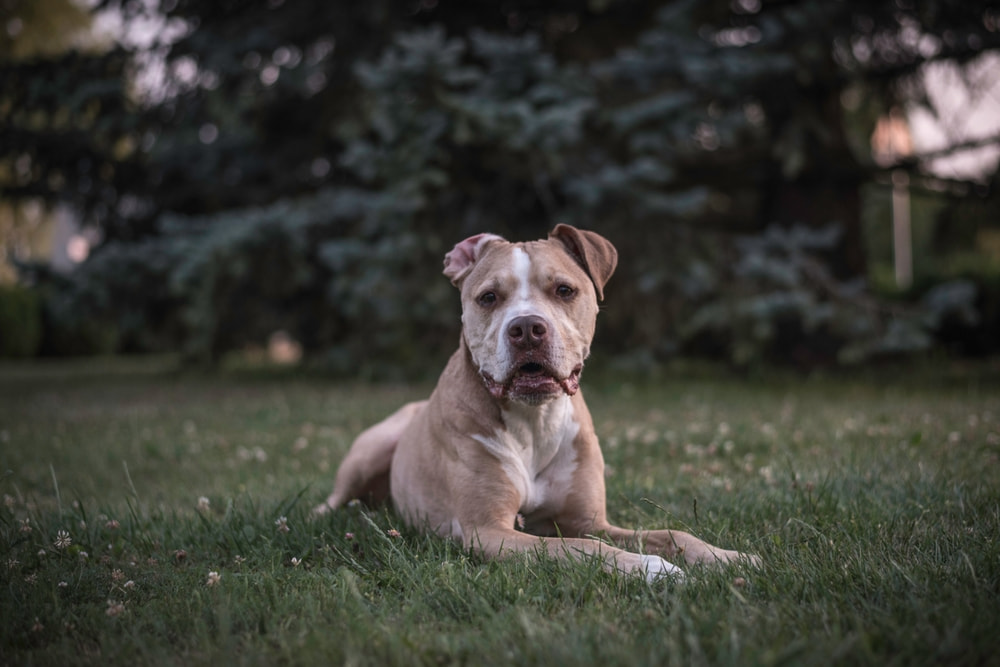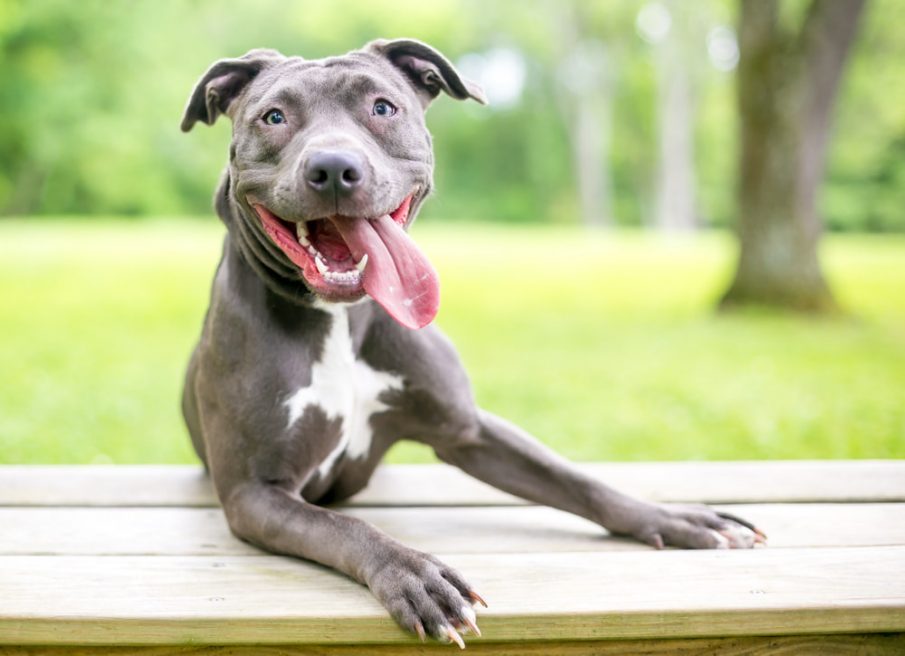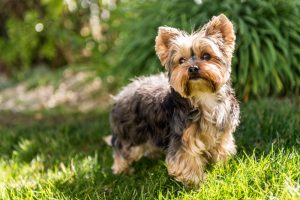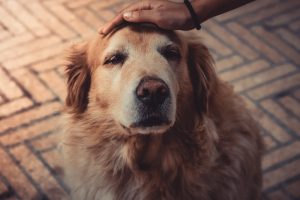Pit bulls are medium-sized, short-haired dogs with a distinct broad snout and muscular build. Pit bull terriers were often characterised as aggressive, originally bred for fighting. Finding examples of pit bulls acting aggressively is as simple as searching for it. Despite this, pit bulls are just like any other dog, and can be perfectly well-behaved and sociable if they are trained correctly.
Pit bulls originate from bulldogs and were used in dog fights in Britain up until 1835 when it became prohibited. These dogs have a history of aggression, having been taught specifically to fight, this has led to numerous accounts of dog attacks on humans, and them becoming outright banned in the UK. Extra care should be taken into training pit bulls to make sure they don’t show signs of aggression towards humans.
Pit Bull Terrier Breeds
Pit bull terriers refer to a group of breeds:
- American Pit Bull Terriers– These dogs were originally bred for dog fighting. Brought over from the UK, they were then bred with terriers and used in dog fights. They have a short, but strong build, and are known for their strength and intelligence.
- American Staffordshire Terrier– Having a similar appearance to the American Pit Bull, the American Staffordshire is better known for being more affectionate, making it a better option for a family companion.
- Staffordshire Bull Terrier– Affectionately nicknamed the ‘Staffy’ this dog is smaller than the American Staffordshire terrier. Their small size adds extra emphasis to their broad head.

READ MORE: How To Look After Yorkshire Terriers
Training
As stated before, these dogs are known for their aggression. Careless or aggressive dog owners should not adopt pit bulls if they are not prepared to spend hours training them. As with training any dog, you need to be vigilant and consistent.
While you may not give them any unique treatment, training is always needed if you want a happy and friendly pup. If you are planning on adopting a pit bull, here are some things to keep in mind when training them.
Socialise Them Early
Early socialisation is key to the development of our dog. Let your pit bull interact with other dogs and people from an early age so that it won’t be frightened or aggressive as it turns older. Make sure the interactions are positive as well to reinforce good behaviour.
Obedience
Obedience training doesn’t only make your dog more well-behaved; it also helps build a bond between you and your beloved pet. If you give your dog a command, and they obey, then you can train that obedience through positive reinforcement with treats, pets, praise, or toys.
Positive reinforcement is a good way to teach your dog that positive behaviour rewards them.
Exercise
All dogs need exercise. If a dog is known for having a temper, then it could be that they are in dire need of exercise. Aggressive and excitable dogs are full of energy that they need to expel. Give them at least 1 walk a day. If your pooch is not tired, they probably need some more exercise.
Keep Your Dog Supervised
Some dogs are known to be aggressive, like pit bulls. While a lot of this comes down to them being poorly trained, they are also known to act out suddenly, resulting in a tragic attack.
To try and keep this from happening, keep your dog supervised when it is around unfamiliar people, especially children. Always keep your dog on a leash.
Spaying and Neutering
Depending on whether you ever want to breed or not, neutering can sometimes lead to less aggressive behaviours.
Seek Professional Help
If your pit bull ever displays some signs of aggression, it might be a good idea to seek professional guidance from a behaviourist before the signs start to grow. While it may not be anything, it isn’t worth the risk.
Be Responsible
Lastly, you need to be a responsible owner. Provide your pit bull with the proper love and care it needs. A loving, gentle environment will do the most in terms of combatting any unwanted behaviours.
Pit bulls are generally associated with violence, and it doesn’t help that many people get one for that exact purpose. Though with proper training, they can be well behaved and lovable just like any dog.
READ MORE: How To Look After Jack Russell Terriers






